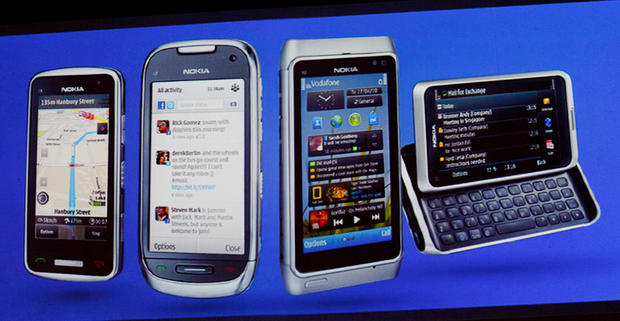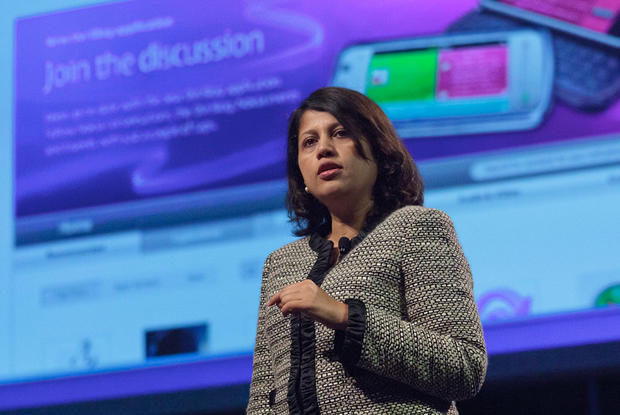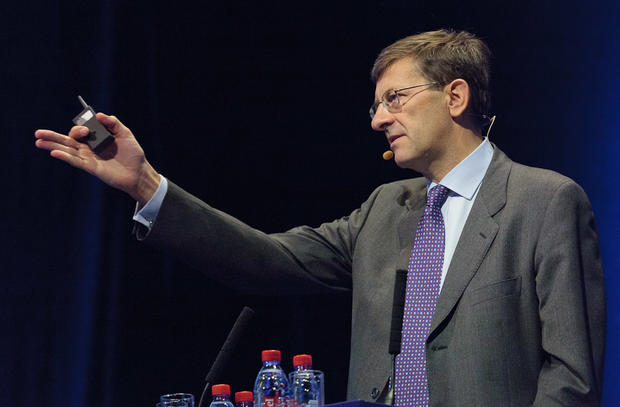Nokia Takes on iOS, Android with New Phones and Apps
LONDON--It is hard to ignore the paradox at Nokia's global partner and developer conference: the company sells more smartphones than anyone else in the industry but is fighting for its life.
Nokia executives speaking here Tuesday didn't try to dismiss the years of trouble that culminated last week in the hiring of Microsoft's Stephen Elop as its new chief executive. Nokia's management is facing Apple's and Google's economic might, brand power, and sudden relevance in the mobile phone market that Nokia once dominated.
With words that were at times defiant, defensive, and strident, though, three Nokia leaders tried to show a new assertiveness to the programmers and mobile phone service providers that the company needs as allies.
"We haven't been as competitive as we want to be in smartphones. That's about to change," said Niklas Savender, Nokia's executive vice president of sales. "Today, we shift into high gear in Nokia's fight back in smartphone leadership."
It's a time of turmoil for Nokia. Chairman Jorma Ollila plans to leave in 2012, The Wall Street Journal reported Tuesday. That's on top of last week's announcement of Elop replacing CEO Olli-Pekka Kallasvuo and Monday's announcement that mobile solutions chief Anssi Vanjoki is stepping down.
To recover its position, Nokia is trying to capitalize on the large number of Nokia phones in circulation today--not just smartphones but the more modest and widespread "
Nokia wants not only to sell this vast yet growing market its phones, but also to turn those people into customers for software sold through Nokia's Ovi store.
Nokia has its work cut out for it, though: Apple's iPhone is spreading well beyond the upper crust, and developers writing software for it can extend to millions of iPod Touch and iPad devices as well. Google's Android OS is a newer arrival, but new Android phones from several top-tier phone makers arrive almost weekly, and its applications market is maturing.
Nokia has a lot of clout yet, though. Gartner predicts Symbian and Android will roughly tie for smartphone operating system market share in 2014--30.2 percent for Symbian and 29.6 percent for Android. The analyst firm also predicts RIM's BlackBerry OS will slip to 11.7 percent that year, and Apple's iOS to 14.9 percent.
Naturally, Vodafone, one of the world's largest carriers, is a willing partner in Nokia's efforts to upsell the world's masses to new phones with new network abilities, not just cater to higher-end customers.
"Everybody--north to south, rich to poor--must be thought of as a data customer," Vodafone CEO Vittorio Colao said.
New smartphones
Both hardware and software figure in Nokia's attempt to rally against the polished user interfaces, advanced Internet connectivity, and thriving developer communities of Android and iOS.
To that end, Nokia has introduced three new-generation smartphones joining its current flagship N8 smartphone in using the Symbian operating system: the smaller C6, the thinner and more expensive C7, and the big and business-oriented E7.
The C6 is the smallest of the bunch but comes with the new ClearBlack Display, which provides deeper black colors, Vanjoki said.
Next up the line is the C7, which features a larger screen and a thinner body. "The C7 is the sleekest, smoothest device in the world. No doubt about that," Vanjoki said.
Last is the E7, the successor to the Nokia 9000 Communicator throne for devices that offer more features without worrying overmuch about a svelte design.
"It's big," Vanjoki said. "For those of us in business and on the move, nothing beats a real keyboard...It's really an office on the go."
Software push
Phones are nice, but one of the chief disruptions from iOS and Android is in extra software--the huge range of games and productivity tools that let a person easily customize a phone. Nokia's phone dominance dates from an era where phone apps came with the phone for the most part, but it's trying to get with the times.
There are 175 million Symbian phones in customers' hands today, with 260,000 being sold each day, so that could be a powerful draw for programmers trying to find a market. Nokia is trying to woo them with better developer tools, lower development costs, and improvements to its Ovi store, said Purnima Kochikar, Nokia's vice president of Forum Nopkia and developer community.
On the software side, the company announced changes for developers geared to make it easier to write software for a variety of Nokia phones, including the lower-end Series 40 and Series 60 models.
Specifically, Nokia touted its Qt Software Development Kit (SDK), whose use lets developers more easily write software not just for Nokia's prevailing phone operating systems today but also the Linux-based MeeGo operating system that it's developing with Intel and using on its next-generation N9 flagship phone.
And Nokia also announced the ability for developers to build in-app purchasing into their programs, meaning that people who download free versions of programs can upgrade to premium ones without leaving the application.
It also means that Rovio, developer of the popular Angry Birds game for mobile devices, can enable a new feature announced Tuesday: the new Mighty Eagle character that can bulldoze opponents--once the player purchases the right to use it in the game.
"In-app [purchasing] capabilities provide a remarkable opportunity to provide extraordinary content to our most engaged customers," said Rovio CEO Mikael Hed.
Nokia also hopes to spur more purchases with lower-end devices; Nokia sold 364 million Series 40 devices last year, all potential new customers. One mechanism Nokia is pushing is operator-driven purchases, in which customers buy applications or content through their mobile phone service provider rather than with a credit card.
And to improve lower-end phone use, Nokia's SDK now supports touch screens on lower-end phones. Kochikar also touted a new WebKit-based browser.
Silicon Valley remains the epicenter of application development, but it's spreading, Kochikar said. On a recent tour she took, developer events were packed, she said.
"Nokia is much loved in most parts of our planet. So I felt like a rock star in a lot of the places I visited. Then when I get back to Silicon Valley--well, not so much," she said. "The good news is we have made a lot of progress this year toward creating a Nokia ecosystem that developers everywhere will love and embrace."



